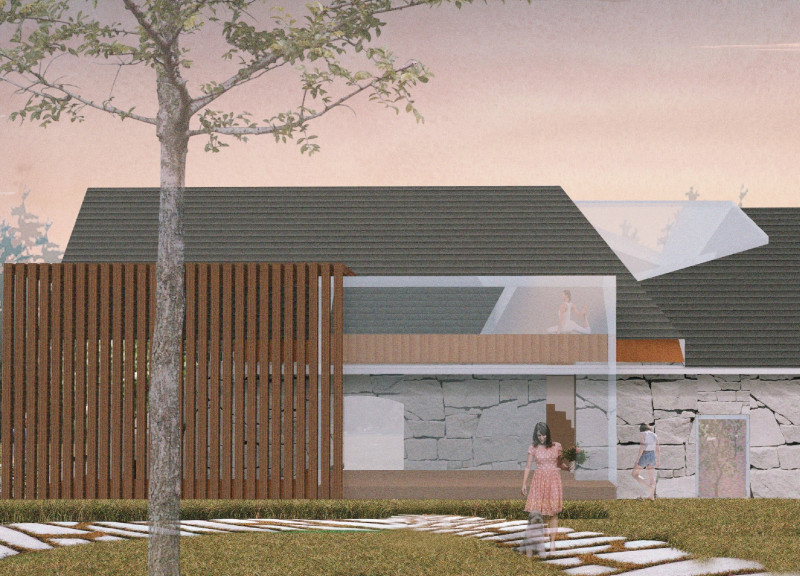5 key facts about this project
The guest house is organized into distinct zones, including private accommodations and communal spaces. These areas serve specific functions, catering to both individual privacy and collective activities. The design incorporates sustainable features, utilizing renewable materials and energy-efficient systems to minimize the environmental impact. With its focus on preserving the area's cultural heritage and promoting well-being, the Ozolini Teamakers Guest House represents a model for environmentally conscious architecture.
Unique Integration of Natural and Built Environments
A key aspect of the project is the seamless integration of the building into its natural surroundings. By utilizing local stone and timber, the design ensures that the structure resonates with its environment. The extensive use of glazing allows for ample natural light and encourages views of the landscape, enhancing the connection with the outside world. The innovative roof design not only adds aesthetic value but also maximizes natural ventilation and light.
The inclusion of a central courtyard fosters social interaction while allowing for a private retreat experience. This layout emphasizes communal gatherings and promotes a sense of community among guests. The adaptable nature of the space means it can accommodate various uses, from workshops to meditation sessions. This flexibility sets the project apart from more traditional accommodation designs, reinforcing the focus on user experience and engagement.
Sustainable Materials and Innovative Design
The Ozolini Teamakers Guest House employs a variety of materials that reflect its sustainable ethos. Local stone provides structural stability, while timber elements offer warmth and connection to traditional architectural practices. The careful selection of materials supports the project's low environmental footprint, contributing to its overall sustainability.
In addition, the design features advanced energy-efficient systems that limit energy consumption. The use of eco-conscious practices not only respects the local ecology but also informs guests about sustainable living choices. The architectural choices made throughout the project underscore a commitment to environmentally sound construction while enhancing the functionality and aesthetic appeal of the guest house.
For more in-depth knowledge of the project, including architectural plans, sections, designs, and innovative ideas, explore the project's presentation to gain further insights into its development and execution. The thoughtful arrangement of spaces and sustainable practices within the Ozolini Teamakers Guest House serves as a reference point for future architectural endeavors focused on community integration and environmental responsibility.


























